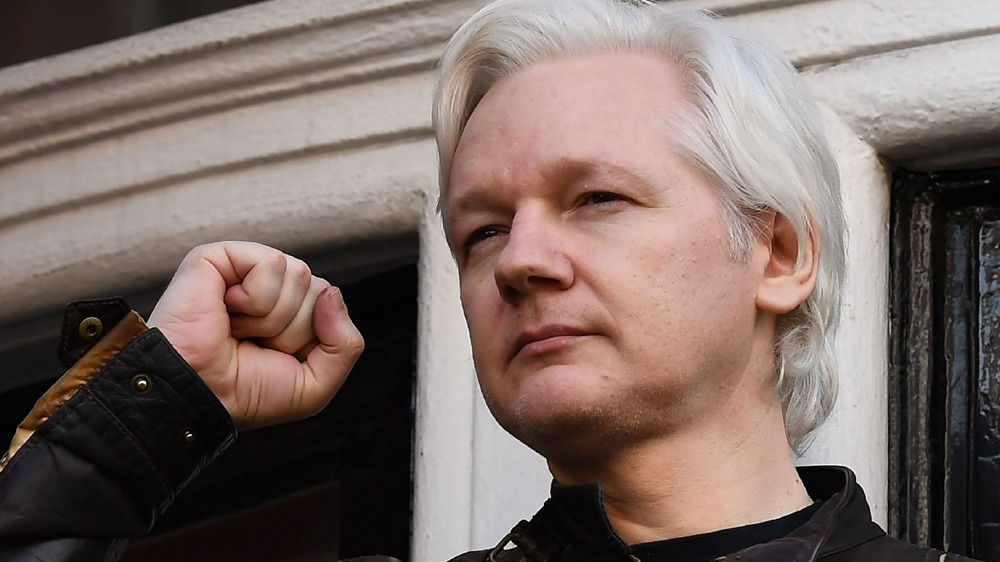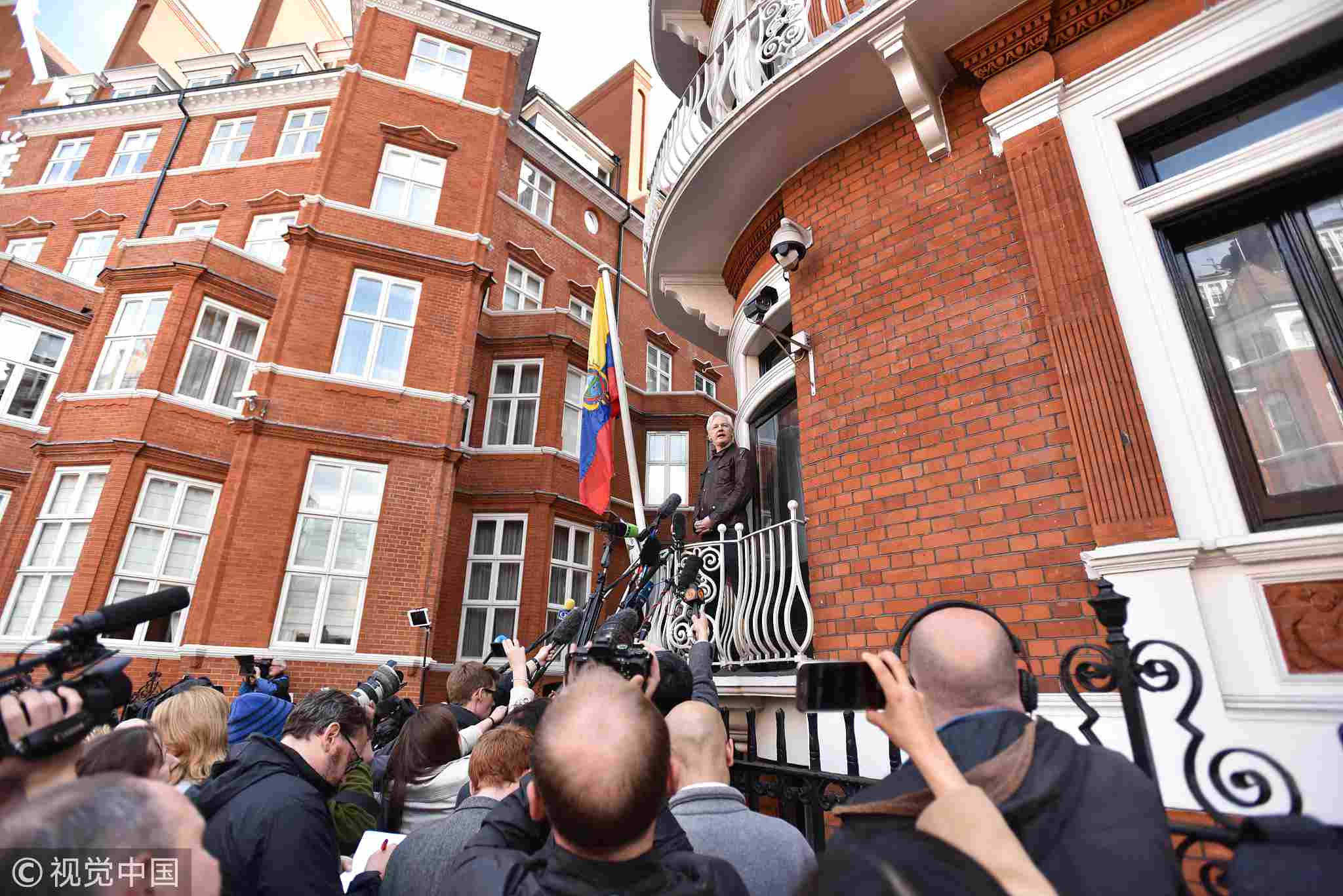
TV Show
10:11, 13-Apr-2019
Are the charges against Julian Assange fair?
Updated
10:45, 13-Apr-2019
The Heat
01:35

Wikileaks co-founder Julian Assange was arrested at the Ecuadorean embassy in London on April 11. Assange had taken refuge in the embassy for seven years, at first to avoid extradition to Sweden over a sexual assault case that had since been dropped. London's Met Police said he was arrested for failing to surrender to the court.
In 2012, the UK issued a warrant for skipping bail, but the United States had also charged Assange with conspiring to hack a classified government computer back in 2010. Now taken in custody, Assange faces extradition, and if convicted, he could be sentenced to five years in prison.
“What is not acceptable is for someone to escape facing justice, and he has tried to do that for a very long time. That's why he is no hero,” said British Foreign Minister Jeremy Hunt.
Are the charges against Assange fair? What does the arrest mean for the news media and freedom of speech? What are the political implications behind his arrest?
Former technical director of the U.S. National Security Agency William Binney spoke to CGTN about Assange's arrest and expressed his concern about the harmful impact on free journalism.
“We are drifting to a very bad state in our country,” says Binney, who suspects that London is fabricating evidence just to get Assange extradited to the U.S. As the arrest was carried out in part on behalf of the U.S., Binney is also anticipating that more charges will be added.

Julian Assange speaks to the media from the balcony of the Embassy of Ecuador in London, May 19, 2017. /VCG Photo
Julian Assange speaks to the media from the balcony of the Embassy of Ecuador in London, May 19, 2017. /VCG Photo
“This set a very bad precedent for journalism and news media,” says Binney. “The whole objective is to get the entire worldwide media to obey the orders of the shadow government." In Binney's opinion, the "shadow government” problem is an international issue involving government secrets being protected by the same group of people.
Journalist and author Jefferson Morley agrees with Binney's view and believes the arrest is solely a warning to whistleblowers instead of correcting real criminal violations.
Michael Daugherty, who is the CEO of The Cyber Education Foundation and author of “The Devil Inside the Beltway,” stresses the value of freedom of speech and gives insights into the political ties behind the arrest.
Former staff director of U.S. Senate Foreign Relations Committee Lester Munson argues that Assange's arrest is necessary for his crimes against the U.S. government.
Morley indicates that the charges against Assange are very narrow. He mentions that the Obama Administration had decided to not bring charges because of the potential to harm freedom of the press. While there has been no new evidence since the Obama Administration, the new administration is bringing up the case that seems only to set a precedent to reduce whistleblowers' rights and freedom.
“This is about the First Amendment, this is about investigative journalism, and this is about persecution through process,” says Daugherty. Instead of arguing on whether Assange is innocent or not, Daugherty draws the focus back on the importance of due legal process.
“You can go to Congress, you can go to independent parts of your agency and you can be heard,” says Munson. He agrees that the stake of journalism and media is high in Assange's case, yet he thinks that procedural methods are better ways to file one's doubt or complaints to the government, that the processes to handle classified information under checks and balances exist for good reasons, and people should follow the rules.
Morley pinpoints that Assange's report of thousands of civilian deaths in Iraq informed the world of the cruelty of war and exposed the political lies, which was a key right to practice the first amendment. “I think Chelsea Manning and Julian Assange have done great a public service,” he argued. "The whole invasion of Iraq on a false premise is a sign that the system didn't work."
“Compared with the value of what he published, I think that they are going after him for a punitive reason,” says Morley, who believes Assange's work spoke the truth of politics and serve significantly the public interest although he might have violated some rules.
While the U.S. is a huge ally with the UK and Assange is an enemy to almost all politicians in the two countries, Daugherty thinks that the UK won't deny an extradition request from the U.S. regardless of the case being a weak one. "None of these people like having their diaries open electronically," Daugherty says.
The Heat with Anand Naidoo is a 30-minute political talk show on CGTN. It airs weekdays at 7:00 a.m. BJT and 6:00 p.m. Eastern in the United States
(If you want to contribute and have specific expertise, please contact us at opinions@cgtn.com.)

SITEMAP
Copyright © 2018 CGTN. Beijing ICP prepared NO.16065310-3
Copyright © 2018 CGTN. Beijing ICP prepared NO.16065310-3